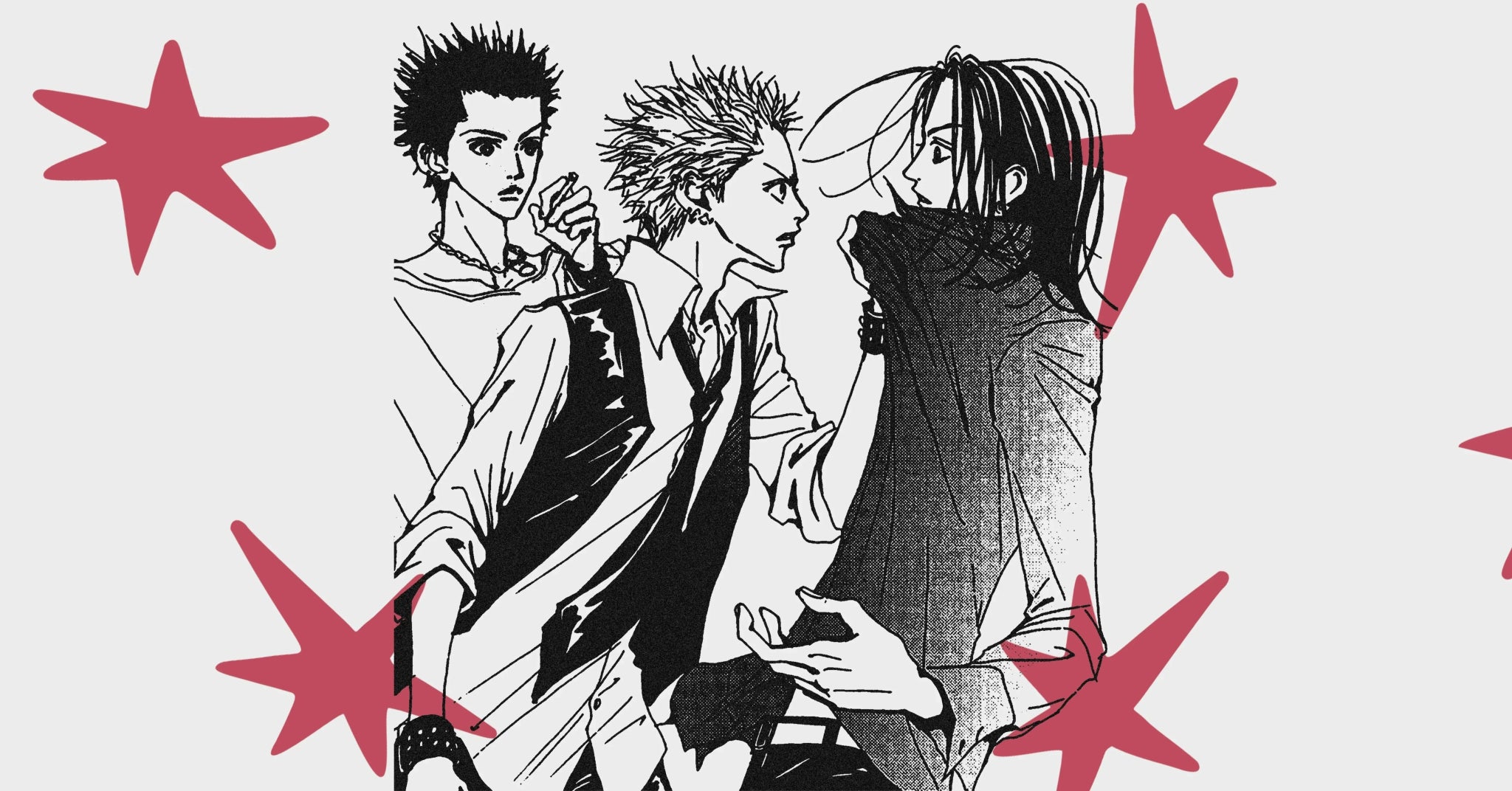
Bienvenue au Takumi Hate Club
Takumi Ichinose : un portrait du contrôle et de la complexité de sa relation avec Hachi
Takumi Ichinose , le bassiste de Trapnest dans l'anime Nana , est un personnage qui divise les fans, notamment concernant son traitement de Nana Komatsu, affectueusement surnommé Hachi. Leur relation est un mélange complexe d'amour, de domination et de manipulation émotionnelle, offrant une exploration approfondie des rapports de force dans les relations amoureuses.


Le jeu de pouvoir dans leur relation
Dès l'entrée de Takumi dans la vie de Hachi, il est évident qu'il a le dessus. Sûr de lui, accompli et énigmatique, Takumi dégage une aura de contrôle qui contraste fortement avec la naïveté et le désir de stabilité de Hachi. Ce déséquilibre ouvre la voie à une relation où Takumi dicte souvent les termes, laissant Hachi dans une situation de vulnérabilité émotionnelle.
L'approche de Takumi envers Hachi est calculée. Il reconnaît sa tendance à rechercher le réconfort et l'affection et s'en sert pour la rattacher à lui. S'il lui offre une sécurité financière et un sentiment de stabilité, ces gestes semblent souvent transactionnels, comme s'ils étaient assortis de conditions tacites qui renforcent sa domination.


Amour ou possession ?
L'un des aspects les plus controversés de la relation entre Takumi et Hachi est de savoir si ses actes sont motivés par un amour sincère ou par un besoin de possession et de contrôle. Takumi insiste pour assumer ses responsabilités lorsque Hachi tombe enceinte, une attitude qui peut être perçue comme protectrice, voire manipulatrice. En intervenant comme son soutien, il la prive de toute autre voie possible, notamment de sa relation avec Nobu, un homme qui privilégie l'intimité émotionnelle à la sécurité matérielle.
La façon dont Takumi traite Hachi révèle souvent son incapacité à exprimer son amour de manière saine. Il lui parle rarement ouvertement de ses sentiments, la laissant deviner ses intentions et ses émotions. Ce manque de transparence crée une dynamique relationnelle où Hachi se remet constamment en question, incertaine d'être véritablement aimée ou simplement contrôlée.


Manipulation émotionnelle et gaslighting
Les interactions de Takumi avec Hachi sont marquées par des manipulations émotionnelles. Il présente souvent ses décisions comme étant dans son intérêt, même lorsqu'elles correspondent davantage à ses désirs personnels. Lorsque Hachi remet en question son infidélité ou son manque de disponibilité émotionnelle, Takumi détourne ou nie ses inquiétudes, la faisant se sentir déraisonnable d'en vouloir davantage de lui.
Ce comportement laisse souvent Hachi douter de ses propres sentiments et instincts. La capacité de Takumi à retourner les situations à son avantage est une caractéristique de la manipulation émotionnelle, et cela maintient Hachi attachée à lui malgré ses moments de doute et de tristesse.
Le va-et-vient de la stabilité
Pour Hachi, Takumi offre la stabilité dont elle a tant besoin, mais au prix de son indépendance et de son bien-être émotionnel. Sa richesse contraste fortement avec ses incertitudes passées, mais son soutien s'apparente souvent à du contrôle plutôt qu'à de l'amour. En la gardant dépendante de lui, Takumi assoit son influence sur elle, même au détriment de son bonheur.




